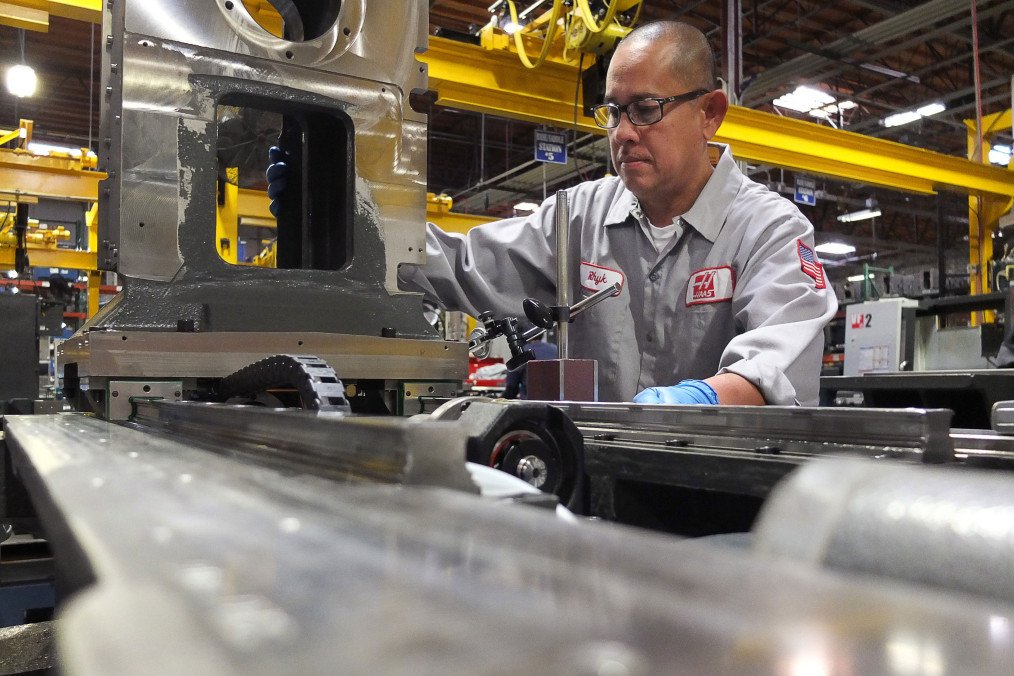- Category
- War in Ukraine
US Penalizes an American Company with a First-Ever Fine for CNC Machine Exports to Russia

The US has fined machine tool manufacturer Haas Automation $2.5 million for illegally supplying CNC (computer numerical control) machine parts to Russian and Chinese defense-linked entities. This marks a precedent in sanctions enforcement.
What happened?
Headquartered in Oxnard, California, Haas Automation is a privately held manufacturer of machine tools and related parts, including CNC vertical and horizontal machining centers and CNC lathes. The company became the world's first manufacturer of CNC machines to be fined by the United States for violating the sanctions regime.
“As part of a coordinated enforcement effort, the Department of Commerce’s Bureau of Industry and Security (BIS) and the Department of the Treasury’s Office of Foreign Assets Control (OFAC) imposed approximately $2.5 million in combined civil penalties against Haas Automation, Inc. (Haas) for alleged and apparent violations of US export controls and sanctions laws, including illegal shipments of Computer Numerical Control (CNC) machine parts to Entity-Listed parties in Russia and China,” the BIS said in a statement.
The transactions charged by BIS involved parties that were added to the Entity List for supporting the defense sectors of China or Russia.

Why it matters
As UNITED24 Media previously wrote, the Russian military-industrial complex is critically dependent on the supply of CNC machines, which are essential for the production of virtually all types of weapons. Between January 2023 and July 2024 alone, Russia imported more than $18 billion worth of machine tools, components, and consumables.
Despite the sanctions, machine tool manufacturers' products find their way to Russia. Since 2002, Haas Automation’s distributor in the country has been Abamet, Russia’s leading supplier of machining equipment, along with its network of regional subsidiaries, said Ukraine’s Economic Security Council. Between 2015 and 2022 Haas Automation shipped more than 4,500 batches of its products to Abamet.
Subsidiaries of Abamet Group have fulfilled more than 170 state orders, with the main customers being the enterprises of the Russian military-industrial complex, according to the Russian public procurement records.
Ukraine’s Economic Security Council first reported on Haas's alleged violations in a PBS NewsHour story in March 2023. Haas Automation products continued to be supplied to Russian enterprises through the distributor Abamet even after the start of Russia’s full-scale invasion of Ukraine, reported the Economic Security Council analysts in their research. The analyzed materials were handed over to the United States government.
In response to the PBS NewsHour report, Haas Automation firmly denied the allegations. In an official statement, the company stressed that all sales of Haas machines to Russia were made in full compliance with export controls and sanctions.
The company also emphasized its support for Ukraine. “Haas has, in compliance with US export controls and sanctions laws, worked closely with its distributor for Ukraine to expedite delivery of 107 Haas-manufactured machines—valued at more than $9.8 million—to 96 customers in Ukraine, providing critical machinery to the country’s defense against Russia,” the company said. “Haas also has provided humanitarian support to Ukraine, including shipping more than 300 pounds of medical supplies to Ukraine in March 2022, and nearly 400 pounds of Christmas gifts to the families of our Ukrainian distributor in December 2022.”

A precedent-setting decision
In the end, the company cooperated with the investigation and admitted to 41 violations. As noted by the BIS, as part of a settlement agreement with Haas, BIS issued an order imposing an administrative penalty of $1.5 million, along with an ongoing audit and reporting requirement. In addition to the BIS penalty, Haas reached a corresponding settlement with OFAC, agreeing to pay a civil penalty of $1,044,781 to resolve violations of OFAC’s sanctions regulations related to Russia and Ukraine.
On 32 occasions between April 2019 and March 2024, Haas violated the EAR by selling CNC machine parts designated as EAR99 through its authorized distributors. These transactions involved the export, reexport, or in-country transfer of goods to defense sector entities on the BIS Entity List in China, including Beijing University of Aeronautics and Astronautics (also known as Beihang University), Shandong Institute of Space Electronic Technology, and China Electronics Technology Group Corporation’s 14th Research Institute (CETC 14). Haas also violated the EAR by making nine sales to two defense sector parties on the Entity List in Russia—Krasnoe Znamya Plant and LEMZ R&P Corporation—between January 2020 and November 2021.
“Today’s coordinated resolution with OFAC demonstrates our resolve to hold accountable companies that do not put in place effective compliance programs to prevent exports to Entity Listed companies,” said Deputy Assistant Secretary for Export Enforcement, Kevin J. Kurland. “That’s especially true when parties on the Entity List have ties to China’s or Russia’s destabilizing military modernization programs.”
Ukraine sees this decision as the potential beginning of significant change, as, despite existing sanctions, products from these companies continue to flow into Russia, amounting to tens of billions of dollars.
“The Haas Automation case is an important signal for global corporations,” said Denys Hutyk, Executive Director of Ukraine’s Economic Security Council. “They must carefully track the end consumer of their products because the cost of cooperation with the aggressor will be high. This is also an example for governments whose businesses still supply goods to Russia: for sanctions to work, it is necessary to introduce a mechanism of inevitable punishment, as the United States has done.”
-206008aed5f329e86c52788e3e423f23.jpg)

-29a1a43aba23f9bb779a1ac8b98d2121.jpeg)

-0666d38c3abb51dc66be9ab82b971e20.jpg)
-35249c104385ca158fb62273fbd31476.jpg)


-554f0711f15a880af68b2550a739eee4.jpg)